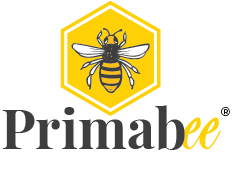Why Choose Colorado's Organic Hemp? Unrivaled Quality and Purity

Hemp is a versatile, eco-friendly, and sustainable crop cultivated in the United States for centuries. With recent advancements in the industry, American-grown hemp, particularly that from Colorado, has gained a reputation as the best in the world. In this blog post, we will explore why Colorado's organically grown, non-GMO, seed-to-sale hemp is the gold standard in the hemp industry.
1. A Rich History: America's Long-standing Relationship with Hemp
The United States has a long history of growing hemp, with cultivation dating back to the early colonial era. Hemp was a valuable cash crop that produced rope, clothing, paper, and other essential products. The founding fathers, such as George Washington and Thomas Jefferson, were known to have grown hemp on their plantations[1]. This historical connection to hemp laid the foundation for the modern American hemp industry, allowing it to thrive and innovate.
2. Colorado's Climate: The Perfect Environment for Hemp Growth
Colorado has a unique climate that is particularly well-suited to hemp cultivation. The state provides optimal growing conditions for hemp plants with abundant sunshine, low humidity, and diverse soil types. These factors contribute to a robust and resilient crop, producing high-quality hemp fibers, seeds, and CBD extracts[2]. The combination of ideal climate conditions and stringent organic farming practices has put Colorado at the forefront of the hemp industry, solidifying its position as the premier source of high-quality hemp.
3. Colorado Hemp Farming: Embracing Sustainable and Organic Practices
Hemp farmers in Colorado are dedicated to sustainable and organic farming practices. These methods ensure the highest quality of hemp, protect the environment and promote biodiversity. Organic farming practices include crop rotation, cover cropping, and natural pest control methods, which help maintain soil health and minimize synthetic chemicals[3]. By adhering to these practices, Colorado hemp farmers produce a product that is superior in quality and environmentally responsible.
4. Seed-to-Sale: Ensuring Quality and Transparency
One of the most crucial aspects of Colorado's hemp industry is its commitment to a seed-to-sale approach. This process guarantees full transparency, as every step of the hemp production process is carefully monitored and documented, from planting seeds to selling the final product. This oversight ensures that Colorado-grown hemp meets the highest quality standards, giving consumers confidence in their purchasing products. The seed-to-sale approach also allows for easy traceability, enabling customers and regulators to verify the authenticity and quality of the hemp[4].
5. Bespoke Industrial Hemp: Customization and Innovation
The Colorado hemp industry is known for its bespoke industrial hemp, allowing for customization and innovation in production. With a focus on research and development, Colorado's hemp industry is constantly exploring new ways to improve and refine hemp products. This commitment to innovation has created unique hemp strains tailored to meet specific consumer needs[5]. By staying at the cutting edge of the industry, Colorado's hemp producers maintain their reputation as the best in the world.
Conclusion
In conclusion, Colorado's organically grown, non-GMO, seed-to-sale hemp is the best in the world due to its rich historical connection to the crop, the ideal climate conditions, sustainable and organic farming practices, a transparent seed-to-sale approach, and a focus on customization and innovation. These factors, combined with the state's commitment to research and development, make Colorado-grown hemp the gold standard in the industry. As the demand for high-quality hemp and CBD products grows, consumers can trust that Colorado's hemp industry will consistently deliver the best products available.
------
References:
[1] Small, E., & Marcus, D. (2002). Hemp: A new crop with new uses for North America. Trends in new crops and uses (pp. 284-326). ASHS Press. Retrieved from https://www.hort.purdue.edu/newcrop/ncnu02/v5-284.html
[2] Schwinghamer, T., McGarvey, B., & Toler, J. (2019). Growing Industrial Hemp in Colorado. Colorado State University Extension. Retrieved from https://extension.colostate.edu/topic-areas/agriculture/growing-industrial-hemp-in-colorado-0-669/
[3] McPartland, J. M., Guy, G. W., & Hegman, W. (2014). Cannabis is indigenous to Europe, and cultivation began during the Copper or Bronze Age: a probabilistic synthesis of fossil pollen studies. Vegetation History and Archaeobotany, 23(5), 697-710. Retrieved from https://link.springer.com/article/10.1007%2Fs00334-014-0449-1
[4] Smart, R., Caulkins, J. P., Kilmer, B., Davenport, S., & Midgette, G. (2017). Variation in cannabis potency and prices in a newly legal market: evidence from 30 million cannabis sales in Washington state. Addiction, 112(12), 2167-2177. Retrieved from https://onlinelibrary.wiley.com/doi/abs/10.1111/add.13886
[5] Crescente, G., Galasso, I., & Pacifico, S. (2021). Hemp (Cannabis sativa L.) as a Source of Bioactive Compounds with Potential as Food Supplements and Pharmaceuticals: An Overview. Molecules, 26(16), 4880. Retrieved from https://www.mdpi.com/1420-3049/26/16/4880





Leave a comment